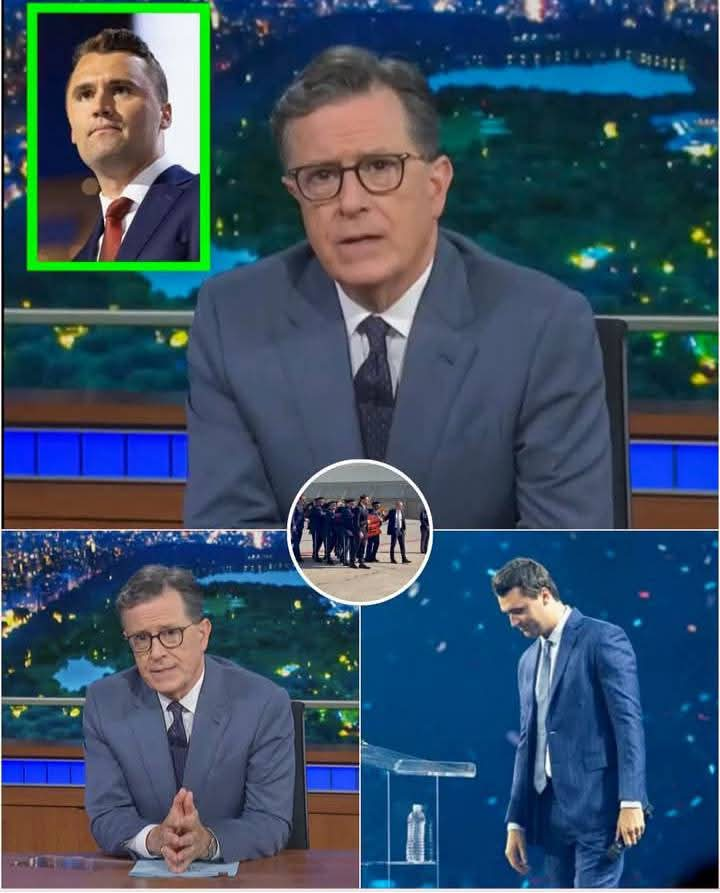CELEBRITY
“We all heard it. But no one believed he would say it.” — Stephen Colbert Opens His Show With a Stark Line After Charlie Kirk’s Fatal Collapse, Leaving America Restless About What Was Never Meant to Be Seen

There was no band. No laughter. No biting cold open. When The Late Show with Stephen Colbert returned to air following Charlie Kirk’s sudden collapse and death at Utah Valley University, viewers immediately sensed something was different.
Colbert stepped onto the stage in silence, his expression subdued, his voice heavy. “We all heard it,” he said, pausing for a long breath. “But no one believed he would say it.”
The line was cryptic, deliberate, and unlike anything audiences had come to expect from the late-night satirist. For once, there was no punchline waiting on the other side.
Charlie Kirk, 31, collapsed while delivering a speech in Utah, leaving the nation stunned. The incident was captured live, but much of what transpired in those chaotic moments remains unclear.
For Colbert to open his show with such a stark reflection — stripped of comedy, stripped of satire — marked what many media watchers are calling “a break in the format of late-night television.”
“The moment the whole format broke — and America could no longer look away,” one critic tweeted as clips of the opening monologue spread across social platforms.
Another wrote, “The silence wasn’t the story. Charlie Kirk was. And Colbert’s words made sure no one could bury that truth.”
Colbert, long known for his ability to weave humor into the day’s toughest headlines, instead delivered a sober meditation.
He did not linger on politics or lean into cultural divides. He spoke only of the fragility of life, the weight of last words, and the unease that comes when something is said in public that was never meant to be heard again.
The studio audience — often roaring with laughter by this point in the program — sat frozen, many visibly emotional.
For them, the laughter had given way to something heavier: a communal acknowledgment of shock, loss, and the inexplicable nature of the moment.
In households across America, the reaction mirrored that silence. Social media flooded with clips of Colbert’s opening, sparking debate over what Kirk might have said before his final moments, and whether Colbert’s words hinted at something deeper.
Some praised the host for breaking away from tradition, while others criticized him for speaking too cryptically.
But one thing was clear: this was not late-night entertainment as usual. This was cultural reckoning in real time.
As tributes to Kirk continue to pour in, and as questions swirl about what unfolded in Utah, Colbert’s opening line may linger longer than any monologue he has ever delivered.
It was not a joke. It was not an act. It was a rupture — in television, in politics, and in the way America processes sudden loss.
“The silence was never the story,” Colbert said, before closing the segment. “Charlie Kirk was. And still is.”
With that, the show cut to break. No music followed.













